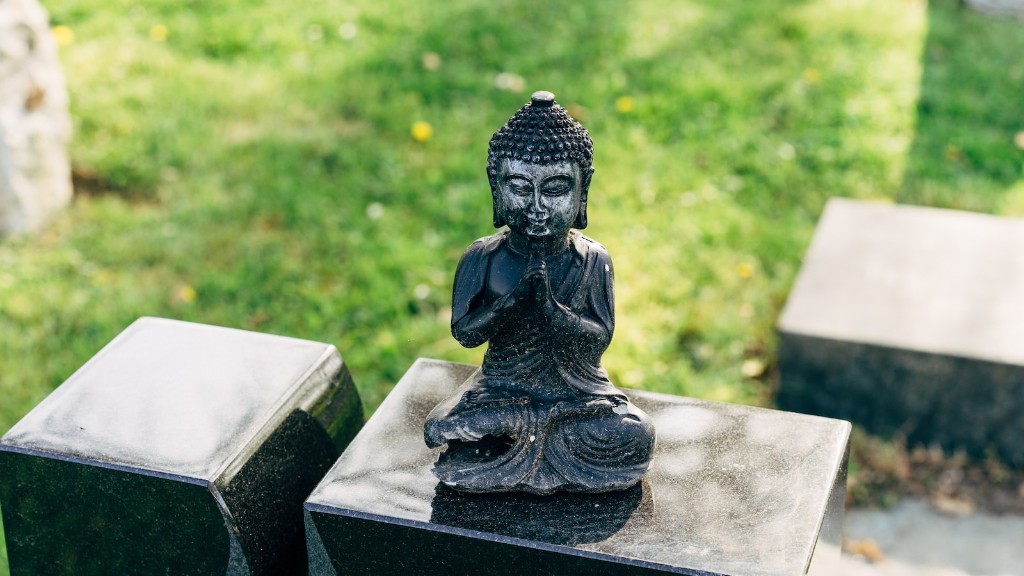Origin Of Hinduism
Hinduism is one of the oldest and most predominant religions in the world and has its roots in ancient India. The religion has no single founder or a specific holy book like other faiths, but there are texts, rituals, laws and teachings that have been handed down through generations. According to scholars, Hinduism started somewhere between 3000 and 5000 BCE. The Sacred Scriptures of Hinduism are known as the Vedas and are made up of four books: Rigveda, Samaveda, Yajurveda, and Atharvaveda.
The Vedas
The Vedas are thought to be among the oldest scriptures in existence, and are widely considered to represent the earliest form of Hindu religious tradition. The Vedas have been a cornerstone of Hindu spiritual beliefs for thousands of years. They are believed to contain a vast amount of knowledge and are seen as divinely revealed and authoritative. Most other Hindu texts and scriptures are based on or in reference to the Vedic literature.
Vedic Mantras
The Vedas are made up of mantras, hymns, laws, rituals, and other religious texts that were composed hundreds, if not thousands, of years ago. Mantras are a set of syllables or words that are chanted out loud or silently to bring about transformation and healing. They are seen as powerful and sacred words said in devotion, as a prayer or offering to the divine. The most well-known Vedic mantra is the Gayatri Mantra, and it is chanted in many Hindu temples and homes around the world.
Shruti
The Vedas are also known as Shruti which means “what is heard” in Sanskrit. This is because the Vedas were seen as revealed knowledge that was heard, rather than written down. This knowledge was transmitted by word of mouth from one generation to the next, and was eventually written down. It was seen as revealed, authoritative knowledge that should be respected and followed.
The Upanishads
The Upanishads are also considered to be part of Vedic literature, although they are not part of the four Vedas. The Upanishads are philosophical and mystical writings that explore the nature of the universe, the human soul, and the connection between them. The Upanishads were written sometime within the 8th and 2nd millennia BCE and are an important component of the Hindu faith.
Conclusion
The Vedas are the Sacred Scriptures of Hinduism and are revered by Hindus all over the world. They include mantras and hymns, philosophical and mystical writings, and laws and rituals. They are ancient scriptures that were revealed, heard, and passed down through generations before they were written down. They have been an integral part of Hindu spiritual beliefs and practice for thousands of years.
Religious Beliefs And Practices
The Vedas form the foundation of many Hindu religious beliefs and practices. Most of the classical Hindu texts, such as the Bhagavad Gita and Ramayana, are based on the philosophical and mystical teachings of the Vedas. Hindus also practice Vedic rituals such as havans, or fire ceremonies, which involve repeating Vedic mantras. These mantras are believed to have a strong, positive effect on the environment and on one’s body and mind.
Social Teachings
The Vedas also contain social teachings that are still followed today. They include teachings on caste and gender roles, as well as instructions on proper behavior. The Vedas encourage harmonious living and teach compassion, cooperation, respect for others, and reverence for nature.
Vedanta
Vedanta is a philosophical system based on the teachings of the Vedas. It is centred on the practice of meditation, and seeks to uncover the ultimate truth of reality. Vedanta is often seen as the path to moksha, which is the liberation of the soul from the cycle of birth, death and rebirth.
The Importance Of The Vedas
The Vedas are a vital part of Hinduism and are seen as a source of divine knowledge and wisdom. They are revered and respected by Hindus all over the world, and their teachings continue to be relevant to this day. They form the basis for many Hindu beliefs and practices, and their teachings on harmony and respect still resonate today.

